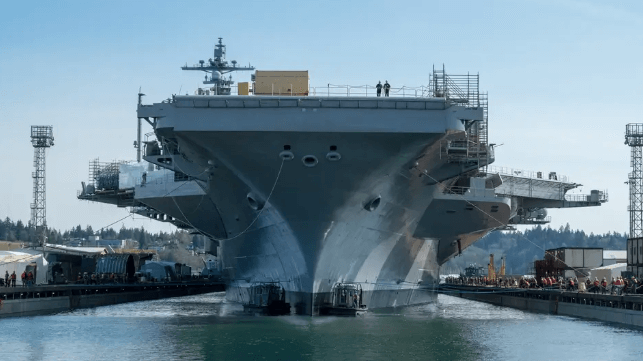Congress May Set Up a "National Commission on the Future of the Navy"

After years of stop-and-start discussion about the future direction of the fleet, the U.S. Navy may soon get a congressional panel dedicated to reviewing its force structure.
In June, in one of her final acts in Congress, outgoing Rep. Elaine Luria (D-VA) proposed an amendment to the 2023 military spending bill to stand up a new National Commission on the Future of the Navy. The amendment was adopted into the House version of the FY2023 National Defense Authorization Act, and it appears on track to make it through the Senate. The language calls for an eight-member panel - one senator and one congressmember from each party, plus four outside experts - tasked with undertaking a "comprehensive study of the structure of the Navy and policy assumptions related to the size and force mixture."
The U.S. Navy has released five different shipbuilding and force structure plans since 2016. Given the service's shifting messaging, some congressional leaders have expressed frustration with the Navy's planning process. The new commission is a way for Congress to take matters in its own hands.
"I have repeatedly criticized the Navy for not having a strategy, and this is a step toward improving our naval and shipbuilding strategy and strengthening our national security," said Rep. Luria earlier this year.
The panel's main brief would be to propose a force structure for the Navy with enough capacity to meet expected missions. Since rebuilding the fleet will cost tens of billions of dollars over decades, requiring real-world policy tradeoffs, the panel would look at three different funding growth levels for shipbuilding: inflation; or 3-5 percent over inflation; or the amount needed to get ready for war in the Pacific and the Atlantic, at any cost.
The commission would also be assigned to find ways to rein in peacetime tasking for the deployed fleet. Each command has to prioritize operational tasking from the regional combatant commander (COCOM), often to the exclusion of maintenance and training, and many policymakers view overtasking as a threat to the long-term readiness of the force. Overtasking, undertraining and undermanning were cited as contributing factors in the USS John S. McCain and USS Fitzgerald collisions in 2017.
The final report for this study would be due in July 2024, but the commission itself would remain authorized for five years (until late 2027).
